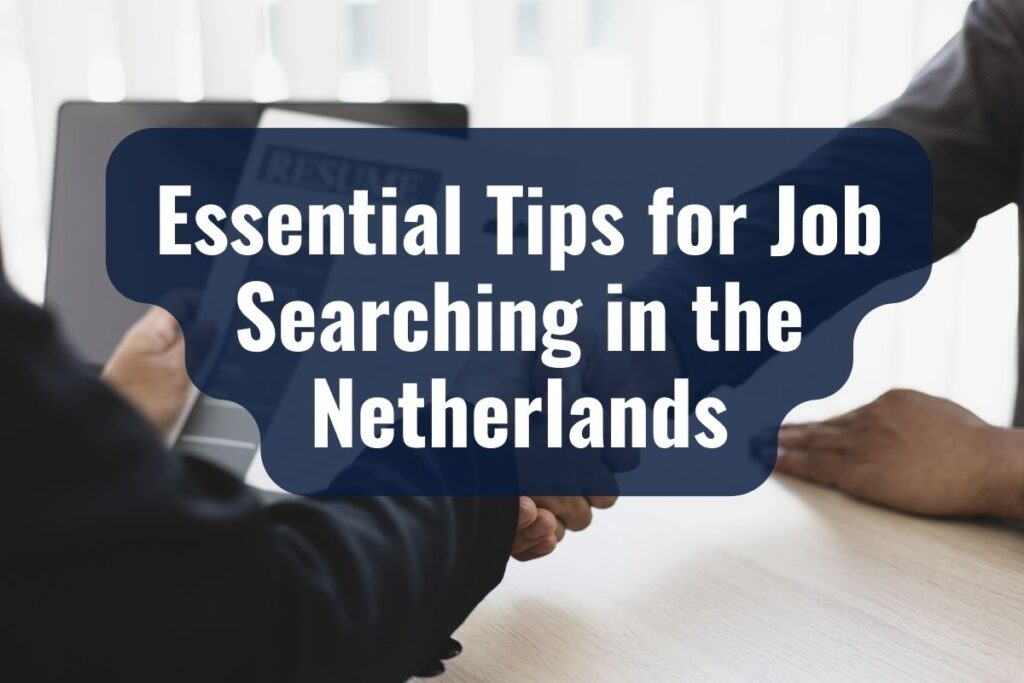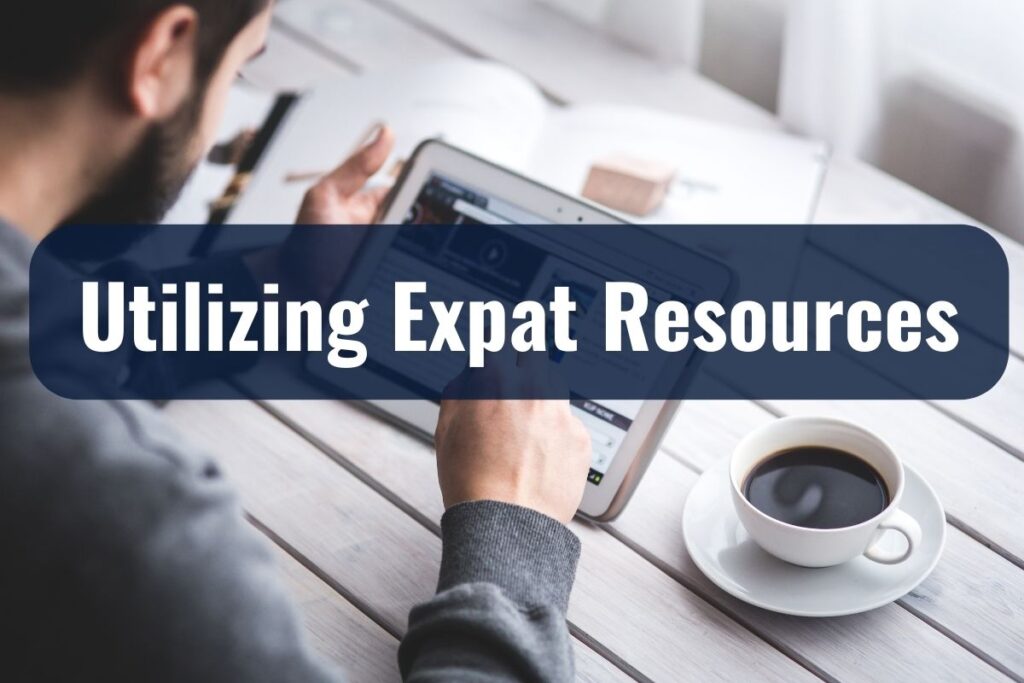Whether you’re seeking a career in technology, finance, or creative industries, the country’s international business environment welcomes professionals from all around the globe.
With a strong emphasis on innovation and sustainability, the Dutch job market is well-suited for those ready to embrace new challenges in a multicultural setting. This article will guide you in finding jobs in the Netherlands.
KEY TAKEAWAYS
- The Netherlands offers a dynamic job market with opportunities for English speakers.
- Tailor your CV and leverage LinkedIn for job searches.
- Utilize job search websites and recruitment agencies.
- Technology, healthcare, and engineering sectors are in high demand.
- Understanding Dutch work permit requirements is crucial.
- Dutch job interviews value directness and team-oriented examples.
- Embrace the Dutch emphasis on work-life balance.
- Expat resources can significantly ease your transition.
The Dutch Job Market
The Dutch job market is characterized by its resilience and diversity, adapting swiftly to global trends and technological advancements. In recent years, there has been a noticeable increase in demand for skilled professionals in various sectors. Technology, healthcare, engineering, and education stand out as fields with significant growth potential. Moreover, the Netherlands’ strategic position as a gateway to Europe enhances opportunities in logistics, trade, and international business.
For English speakers, the job landscape is particularly favorable in multinational corporations and startups that adopt English as their working language. These companies are often located in major cities like Amsterdam, Rotterdam, Utrecht, and Eindhoven, where the demand for international talent is high.
Understanding the nuances of the Dutch job market is crucial for job seekers. Employers value candidates who show initiative, flexibility, and the ability to work in diverse teams. Additionally, the Netherlands places a high emphasis on work-life balance, often reflected in job offerings and workplace culture.
Essential Tips for Job Searching in the Netherlands

To increase your chances of securing employment in the Netherlands, consider these strategic approaches:
Tailoring your CV and cover letter to Dutch standards is pivotal. Dutch employers prefer concise, factual CVs that highlight relevant work experience and skills. Including a personal statement at the beginning of your CV can provide insight into your motivation and fit for the position.
The importance of LinkedIn and networking cannot be overstated in the Dutch job market. Many Dutch companies use LinkedIn for recruitment, making an up-to-date profile essential. Additionally, networking events, professional associations, and meetups are excellent ways to connect with industry professionals.
- Attend job fairs and networking events: These gatherings are perfect for making connections and learning about open positions.
- Engage with industry-specific associations: Membership in professional associations can provide access to exclusive job listings and networking opportunities.
- Utilize LinkedIn effectively: Ensure your profile is complete and reflects your career aspirations. Engage with content relevant to your field and connect with professionals and companies in the Netherlands.
Where to Look for Jobs
Finding the right job in the Netherlands involves knowing where to look. The digital landscape offers numerous platforms and resources tailored to job seekers in various industries. Here are essential sources to commence your job search:
Job search websites: Platforms like LinkedIn, Indeed.nl, and Monsterboard.nl are popular among job seekers and employers alike. They offer a wide range of listings from various sectors and are frequently updated.
Company websites: Directly visiting the careers page of companies you’re interested in can provide access to the latest job openings. This approach allows you to apply directly, ensuring your application goes straight to the employer.
Recruitment agencies: Agencies such as Randstad, Michael Page, and Robert Walters specialize in connecting candidates with companies looking for their skills. Many agencies have services specifically for English speakers and can offer personalized job search assistance.
Networking: Beyond digital resources, personal connections can lead to job opportunities. Expanding your network through events, professional associations, or LinkedIn can open doors to positions that may not be advertised publicly.
Social media: Platforms like Twitter and Facebook often have groups and pages dedicated to job searches in specific fields or regions. Joining these can provide insights and leads on vacancies.
Jobs in Demand in the Netherlands

In the ever-evolving Dutch job market, certain sectors and professions stand out for their high demand for skilled professionals. Keeping abreast of these trends can guide your job search toward industries with the greatest opportunities:
| Sector | Roles in Demand |
| Technology & IT | Software Developers, Cybersecurity Experts, Data Analysts |
| Healthcare | Nurses, Doctors, Medical Specialists |
| Engineering | Civil, Mechanical, Electrical Engineers |
| Education & Research | Educators, Researchers, Academic Staff |
| Finance & Business Services | Finance Experts, Accountants, Business Consultants |
| Creative & Marketing Industries | Graphic Designers, Digital Marketers, Content Creators |
Finding Jobs in the Netherlands: Understanding Dutch Work Permits
Securing employment in the Netherlands often requires navigating the work permit process, an essential step for non-EU/EEA nationals. Here’s what you need to know:
Basic Requirements for Obtaining a Dutch Work Permit
Generally, employers must prove that no suitable candidates are available within the EU before hiring from outside the EU. This rule does not apply to highly skilled migrants, who are subject to different criteria.
Different Types of Work Permits
The Netherlands offers various work permits, including the highly skilled migrant permit, the general work permit (GVVA), and the orientation year visa for recent graduates. Each has its eligibility criteria and application process.
Process for Applying for a Work Permit as an English-speaking Expat
Typically, your employer initiates the application process on your behalf. For highly skilled migrants, the employer must be recognized by the Dutch Immigration and Naturalisation Service (IND) as a sponsor. Documentation required usually includes a valid passport, employment contract, and qualifications or certificates relevant to your job position.
Tips for Successful Job Interviews in the Netherlands

Mastering the job interview process is crucial for landing a position in the Netherlands. Here are essential tips to prepare effectively:
- Cultural nuances in Dutch job interviews: Directness and honesty are valued in the Dutch culture, including in the workplace. Be prepared to speak openly about your strengths, weaknesses, and professional aspirations.
- Common questions and how to prepare for them: Interviewers often ask about your ability to work in teams, handle stress, and adapt to new environments. Reflect on specific examples from your past experiences that demonstrate these qualities. Additionally, research the company’s values and recent projects to tailor your responses to their context.
Adjusting to the Dutch Work Environment
Adapting to a new work culture is a pivotal step towards success in the Netherlands. Here are key aspects to consider for a smooth transition:
- Overview of typical Dutch workplace culture and etiquette: The Dutch workplace is known for its flat hierarchy, where openness and direct communication are highly valued. Decision-making often involves team input, reflecting a collaborative approach.
- Emphasis on work-life balance and flexible working arrangements: The Netherlands is renowned for promoting work-life balance, with many companies offering flexible working hours and the possibility to work from home. This approach supports a healthy balance between professional responsibilities and personal time.
Utilizing Expat Resources

Leveraging expat resources is a strategic way to ease your transition into the Dutch job market and society. Here’s how to make the most of these supports:
Introduction to expat centers and communities as resources: Expat centers across the Netherlands offer a wealth of information on living and working in the country. They can provide guidance on everything from job searching to understanding local customs.
How to get help and advice from fellow expats in the Netherlands: Engaging with online forums and social media groups dedicated to expats in the Netherlands can offer insights and advice from those who have navigated similar paths. Additionally, attending meetups and social events can help build your network and provide support during your transition.